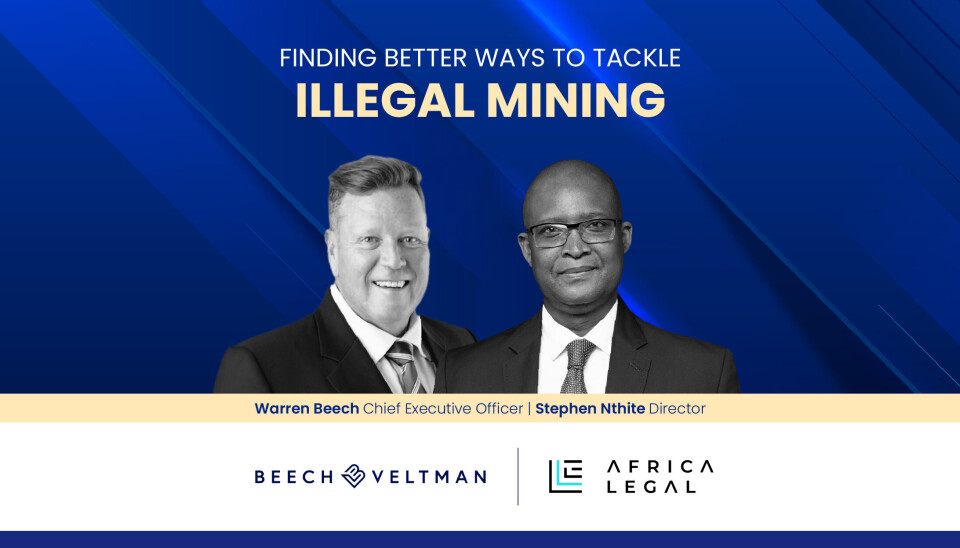Given the huge costs to African economies, populations, and the environment, it is time for governments to move away from solely relying on ‘the big stick’ of law enforcement to tackle the problem of illegal mining and embrace a more holistic approach that could make a real difference, say industry experts Warren Beech and Stephen Nthite of Beech Veltman, Inc.
“Illegal mining has been around for centuries, but we’ve seen a definite evolution over the past 15 to 20 years from small-scale artisanal mining by locals, driven by need, to huge scaling up covering everything along the value chain from extraction to transportation, support services, refining, selling to the end user,” says Beech. “It’s become a corrupt criminal enterprise which runs parallel to legal mining, but has a devastating effect.”
In January, South African Minister of Mineral and Petroleum Resources, Gwede Mantashe, called illegal mining “a war on the economy” which cost the country an estimated R60 billion in 2024 alone ($3 billion dollars). The same month, 78 bodies and 246 survivors were extracted from an illegal Stilfontein mine in a court-ordered operation following a months-long police siege. Elsewhere, illegal gold mining costs Ghana more than $2 billion annually.
But that’s only some of the damage, say Beech and Nthite.
“Illegal mining is a threat to the environment,” says Nthite, noting the South African Constitution says citizens are entitled to live in an environment that is not a threat to their health. “It doesn’t matter where illegal mining takes place, eventually it results in environmental catastrophes.”
Illegal mining also massively increases costs for legal mining, note Beech and Nthite, from increased security at the mines to employment and infrastructure costs. It’s a pervasive problem with many negative impacts, but that’s not an excuse for stakeholders not to act.
“I think the message has to always be, something can be done about it, if enough people have the will to do something about it,” says Beech.
Short-term, using social and labour plans to create sustainable relationships between mining companies and communities, and to get as many community members benefiting from legal mining as possible, may help, says Nthite. It can dissuade them from partaking in illegal mining, though the money on offer from mining cartels is tough to beat. The long-term solution requires governments to shift their approach and revamp mining legislation.
“At the moment, amendments are always focused on improving enforcement or extending consequences,” says Beech. “Instead, we need a framework for easy access to permits for small-scale miners and communities, easy access to support services, and easy access to new financing models. This has worked in a lot of countries in South America.”
The African continent has plentiful resources that can be mined efficiently on a very small scale, say Beech and Nthite, so regulating artisanal mining could create many benefits, including the more legal mining you have in place, the more you push out illegal mining.

